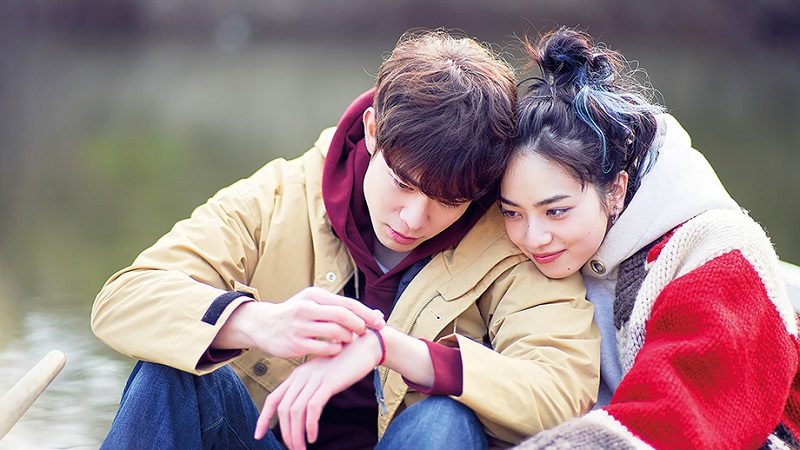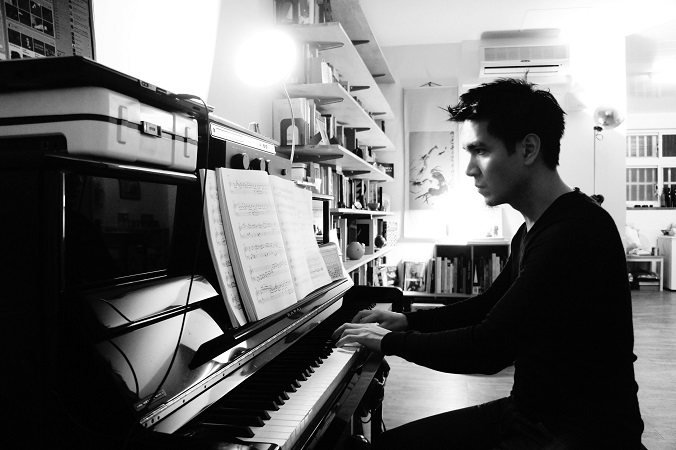Film Review: Moonlight Shadow by Edmund Yeo

Edmund Yeo isn’t a detached figure in the Japanese film world. But it is surprising that it has taken him this long to create a feature film entirely in the Japanese language.
Yeo’s inventive approach to ‘Kingyo’ a Tokyo-set short film was released nationally in 2009. Since then, his work has garnered a warm and enthusiastic reception in both Japan and its region.
With his latest film ‘Moonlight Shadow’, Yeo’s delivery of this feature film has been his most tenacious and ordinary work to date. Ordinary may not entirely mean typical. But perhaps by placing conventionality at the rear, it may be his first that feels like it was made for a global audience setting the Tokyo International Film Festival aside.
Ordinary brings forth the desolation focused on the insufferable mood of two deaths, which remains a consistent virtue throughout the film.
The story is based on a 1988 short story by Banana Yoshimoto, a name that has so significantly brought Japanese literature to the fore in the 80s, albeit in its short circumstances. The film isn’t much of retribution to the story after its revised adaptation to film. Losing some of its enigmatic elements that gripped the literature world in the beginning.
Young lovers Satsuki (Nana Komatsu) and Hitoshi (Hio Miyazawa) first meet at night on the banks of a river and quickly fall into an intimate relationship. Hitoshi introduces his new girl to his quirky younger brother, Hiiragi (Himi Sato), and the latter’s girlfriend, Yumiko (Nana Nakahara), who’s obsessed with a paranormal phenomenon that allows people to reconvene with the dead — the “moonlight shadow” of the title. The happy moments were abruptly halted when Hitoshi and Yumiko are killed in a traffic accident.
A Brief Correspondence with the Composer of the film…尊室安, Aaken, An Ton That
Taiwan-based French-born Vietnamese composer AN TÔN THẤT created a haunting score alongside Yeo’s dream-like elements. In a recent email correspondence with the composer, here’s what An said about this collaboration with Edmund Yeo: “Composing music for a new film is always a new adventure and a new challenge, as I see each film like a person. So I try to find the wavelength that will allow me to be in tune with the film and find the right musical identity for it. Therefore, a good connection with the director is essential.”

“When Edmund contacted me for ‘Moonlight Shadow’, I was more than delighted: Banana Yoshimoto is a favorite writer of mine, I was getting another opportunity to work on a Japanese film, and I was going to collaborate with Edmund, whose style and approach to cinema I really liked. He is also someone who gives lots of artistic freedom to the people he’s teaming with. At that time, he was just beginning to edit the film, so I based my inspiration on the book.”
“I also had lengthy discussions with Edmund to understand his vision and interpretation of Yoshimoto’s novella. I only asked him to send me some snapshots of the film and let my intuition be my guide. The first piece which came to me was the one with the descending arpeggio, played either by a string ensemble, a violin or a piano. From there, the music flowed out very naturally, as I knew I had found the path. Of course, I was extremely nervous when I sent the music to Edmund. He was too! Nervous, then relieved, he told me later! I only got to see the film when both the score and the editing were nearly completed!”
“‘Moonlight Shadow’ was a joyous experience for me. I love to work with Edmund. For a composer, he’s a director with an incredible musical sense. And one last thing I find meaningful to me is that a Malaysian director would make a film in Japan with music from a Vietnamese composer. I am hoping to see more projects that will get artists from various Asian countries to work together.”
Listen to AN TÔN THẤT’s soundtrack written for Edmund Yeo’s ‘Moonlight Shadow”, here.
Reference: An’s official website
Letting the seductive aesthetics do most of the talking, the most charming elements takes place during the night or at the light of dawn, brought forth ever so naturally by Yeo’s long-term collaborator and cinematographer Kong Pahurak.
Adhering to some of Japan’s most stylish indie elements, the protracted and lengthy story-telling almost at the edge of boredom cannot be more resolutely completed without the Komatsu. It is her captivating aura and fierce eyes that kept us all glued to the screen. Just like wine, its intensity was felt long after the credits rolled.
Before Moonlight Shadow, Yeo returned to the Tokyo Film Festival with Malu after winning best director with Aqerat. A hallmark of Yeo’s films is the cinematography, often dreamlike as though seen through the lens of memories coloured by emotions.
Yeo is known for his producer and writer’s role in the films: We, the Dead (2017), Liu Lian Wang Fan (2014), Inhalation (2010), and Chicken Rice Mystery (2008).




